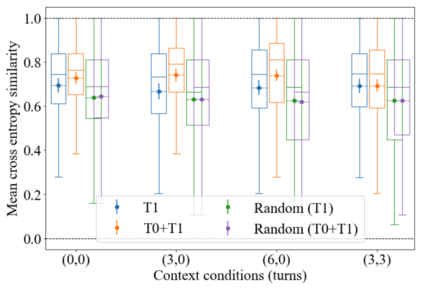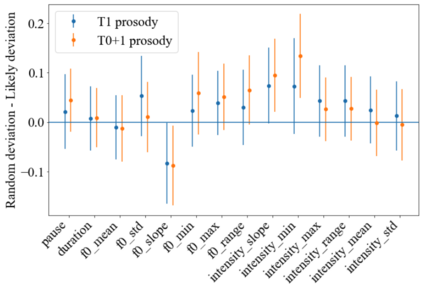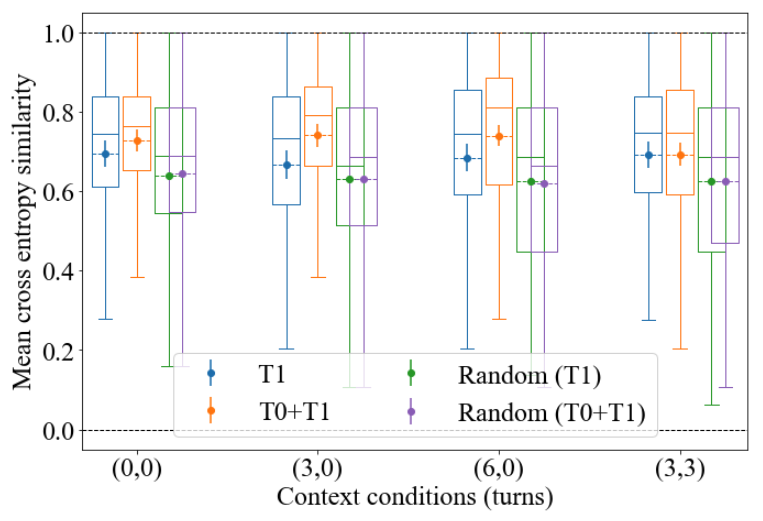People convey information extremely effectively through spoken interaction using multiple channels of information transmission: the lexical channel of what is said, and the non-lexical channel of how it is said. We propose studying human perception of spoken communication as a means to better understand how information is encoded across these channels, focusing on the question 'What characteristics of communicative context affect listener's expectations of speech?'. To investigate this, we present a novel behavioural task testing whether listeners can discriminate between the true utterance in a dialogue and utterances sampled from other contexts with the same lexical content. We characterize how perception - and subsequent discriminative capability - is affected by different degrees of additional contextual information across both the lexical and non-lexical channel of speech. Results demonstrate that people can effectively discriminate between different prosodic realisations, that non-lexical context is informative, and that this channel provides more salient information than the lexical channel, highlighting the importance of the non-lexical channel in spoken interaction.
翻译:我们建议研究人对口交流的看法,以此更好地了解如何在这些渠道中编码信息,重点是“交流环境的哪些特点影响听众对言论的期望?” 。为了调查这个问题,我们提出了一个新的行为任务测试,即听众在对话中是否能够区分真实的发音,从具有相同词汇内容的其他场合抽样的发音之间能否区分真实的发音。我们描述了感知和随后的歧视能力如何受到不同程度的另一种背景信息的影响,这既包括法系的又包括非法系的语音渠道。结果显示,人们可以有效地区分不同的发音实现,非时态背景是信息性的,而且这一渠道提供的比词汇渠道更突出的信息,突出了非法系在口语互动中的重要性。






